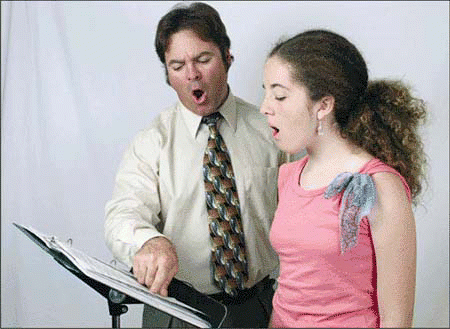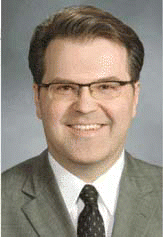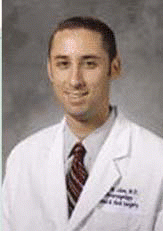Although voice therapy is commonly used as an initial treatment for vocal fold nodules, its role in the treatment of vocal fold polyps and cysts is less defined. In 2003, a survey of more than 1000 members of the American Academy of Otolaryngology-Head and Neck Surgery (AAO-HNS) found that about 91% recommended voice therapy as initial treatment for vocal fold nodules, but only 30% preferred voice therapy as initial treatment for polyps and 22% for cysts (Ann Otol Rhinol Laryngol 2003;113:827-33). The survey found that there was no clear consensus on the use of voice therapy for polyps and cysts, said the lead author of the study, Lucian Sulica, MD, of the Department of Otorhinolaryngology at Weill Cornell Medical College in New York. A significant proportion of otolaryngologists would use voice therapy in an adjunctive role to surgery-either before or after-for these types of lesions.
Explore This Issue
February 2007
New data from a recently reported study now offers otolaryngologists more evidence on which to determine the benefit of voice therapy for polyps and cysts. Although preliminary, the evidence suggests that voice therapy does benefit patients with vocal fold polyps or cysts and supports the need for further study to clarify the role that voice therapy may play in helping the many people who will need treatment for these lesions.
What the Evidence Suggests
In the first study ever to directly examine the efficacy of voice therapy as initial treatment for vocal fold polyps or cysts, 57 patients with vocal fold cysts (26.3%) or vocal fold polyps (73.7%) who had undergone at least two sessions of voice therapy by qualified speech pathologists or singing voice specialists were enrolled in a retrospective study conducted by investigators from the Duke Voice Care Center and Vanderbilt Voice Center. The main outcome measured was voice improvement, defined by the patient at last follow-up as having sufficient improvement in his or her voice to meet his or her daily voice needs most of the time. Mean follow-up of the study was 7.0 months (range of 2 to 36 months).
Presenting the results of the study at the 110th annual meeting of the American Academy of Otolaryngology-Head and Neck Surgery in Toronto in September, lead author Seth M. Cohen, MD, MPH, of the Duke Voice Care Center in the Division of Otolaryngology-Head & Neck Surgery at Duke University Medical School in Durham, NC, reported that at least one-third of the 57 patients achieved resolution of symptoms with voice therapy alone. The key [of the study] is that approximately one-third of patients with vocal fold polyps and cysts may experience an improved voice with voice therapy alone, he said, emphasizing that these are preliminary results that need to be substantiated with prospective data with validated outcomes measures.
Multivariate analysis showed no statistically significant relationship among sex, smoking status, allergy treatment, singing status, mucosal wave, and gastroesophageal reflux treatment and improvement in voice after voice therapy. However, patients with translucent polyps had significant voice improvement after voice therapy compared with those with fibrotic, hyaline, or hemorrhagic polyps, with a response rate of 81.8% vs 15.4% (p = 0.002), respectively. Patients with more edematous, translucent polyps, those with complete vocal fold closure and muscle tension dysphonia may be more likely to respond to voice therapy, said Dr. Cohen.
For Gayle Woodson, MD, Professor of Otolaryngology at Southern Illinois University School of Medicine in Springfield, the evidence may suggest that voice therapy will improve the voice in patients with vocal fold polyps and cysts, but emphasized that voice therapy will not lead to resolution of the lesions as it does for patients with vocal nodules.
Vocal nodules respond to voice therapy because they are essentially calluses. The ‘skin’ on the vocal fold gets thicker in response to stress. If you take away the stress, the hyperplastic response goes away, just like blisters on your feet go away when you start wearing shoes that fit properly, she said. On the other hand, polyps and cysts are permanent and do not go away with voice therapy. Voice therapy can help you get a better voice out of a larynx with a cyst or polyp, but it does not make the lesions go away.
Need for More Evidence
It is mportant to emphasize that these study results are preliminary and that more studies are needed to prospectively evaluate the optimal role of voice therapy as in this setting. Until then, surgery remains the treatment of choice. My research does suggest that voice therapy is a valid treatment option for patients with vocal fold polyps and cysts, said Dr. Cohen. It does not replace surgery as a whole, but may improve some patients’ voices so they may meet their daily voice needs without surgery.
According to Dr. Cohen, along with validating these retrospective results with prospective studies, further investigation is also needed to evaluate the longevity of voice improvements with voice therapy in this setting. In addition, more objective measurements of voice improvement, other than self-reporting by the patient as was used in this study, are needed to validate and clarify these findings.
For Dr. Sulica, the lack of studies on voice therapy for vocal fold polyps and cysts is probably the main reason that people don’t deem it effective in this setting. When you get down to examining the literature, there’s little good evidence that voice therapy is effective for polyps and cysts, he said. I think that’s because nobody’s done the studies, not because voice therapy is ineffective.
Despite this lack of evidence, Dr. Sulica thinks that voice therapy is probably appropriate for nodules, polyps, and cysts.
Advantages of Voice Therapy
One of the main advantages of voice therapy is that it may allow some patients to forgo surgery, and for patients who cannot undergo surgery, it provides an alternative option. If a patient is too ill to undergo surgery or does not want surgery, said Dr. Woodson, voice therapy is an alternative that might improve the voice.
Voice therapy may also be a good alternative for patients who cannot commit to surgery and the postoperative rehabilitation period that often requires resting the voice. Voice therapy can bring benefit for some patients who cannot miss work and otherwise commit to the surgery and rehab process, said Dr. Cohen, adding that voice therapy can also provide some voice improvement until more definitive treatment can be undertaken by the patient.
According to Dr. Sulica, avoiding surgery if possible is a responsibility of clinicians. I’d suggest that part of being a good laryngologist involves avoiding all avoidable surgery, he said, adding that physicians may be reluctant to use voice therapy out of some misguided sense that they’re going to ‘lose the case.’
Another reason may be the lack of skilled voice therapists. According to Dr. Sulica, the most common comment by otolaryngologists in the 2003 survey was the lack of skilled voice therapists in their area. All voice therapy is not the same, said Dr. Sulica. Just sending a patient along to a speech-language pathologist doesn’t ensure that he or she is going to get appropriate therapy. A skilled voice therapist is a speech-language pathologist who has gone out of his or her way to develop an expertise in voice disorders.
Further Research Is Required
Although voice therapy is now commonly used for vocal fold nodules, its use for vocal fold polyps and cysts is less defined. New evidence suggests that many patients-particularly those with translucent polyps-may benefit from voice therapy for these lesions. Although surgery remains the treatment of choice for these lesions, voice therapy may be a good alternative for patients in whom surgery is contraindicated or for whom it carries too much of a burden. Further studies are needed to prospectively validate these preliminary data, and to address unanswered questions such as the longevity of voice improvement with voice therapy for these lesions.
©2007 The Triological Society



Leave a Reply